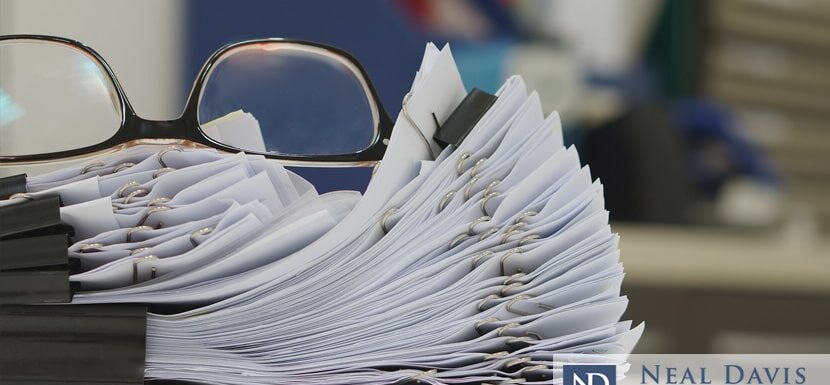
Harris County has a huge backlog of misdemeanor and felony cases, which prosecutors are trying to clear with help from a “triage” program that pays them overtime.
The backlog began building after Hurricane Harvey in 2017, “and then we had a pandemic, which again slowed the wheels of justice, so since that time our caseload has only gotten bigger and it’s taken a heavy burden on us,” Mateo Gonzalez, chief prosecutor from the Harris County District Attorney’s Office for Criminal Court at Law No. 13, told KTRK News this week.
There are currently 40,729 active misdemeanor cases that need a final resolution in Harris County courts. That’s actually a decrease of 7 percent from June of 2021, when there was a high of 43,971 misdemeanor cases.
However, it’s also an increase of almost 30 percent from before the pandemic began in early 2020. In February of that year, there were 31,503 active misdemeanor cases.
In Houston, Texas—and many other cities—domestic violence calls to police rose 20 percent in March 2020 compared to the previous month, as the coronavirus (COVID-19) pandemic rages on.
Overtime pay helps reduce the backlog
To reduce the huge backlog of misdemeanor cases on the books, Harris County commissioners approved $3.1 million in overtime pay last year to assist prosecutors as part of a “triage” program of refocusing priorities for prosecution. In the misdemeanor division of the Harris County District Attorney’s Office, there are 50 such prosecutors who must handle the more than 40,000 active cases.
So far, about a third of the funds have been used by misdemeanor prosecutors who are willing to work overtime. They have reviewed almost 10,000 misdemeanor cases so far as part of the triage program.
Of those, only about 4 percent are less than 180 days old, while 80 percent of the cases are over 1 year old.
As KHOU News has reported, earlier this year, county commissioners also approved 8 new visiting judge positions to help clear the massive backlog of criminal cases.
Backlog numbers are a challenge
County Prosecutor Rashonda Shaw told KTRK that prosecutors handled an average of 100 to 150 new misdemeanor cases a day before the pandemic. Now the number is around 170 new misdemeanor cases per day, adding to the 1,000 active cases to which a misdemeanor prosecutor already may be assigned.
“There’s only so much we can do,” said Nathan Beedle, misdemeanor chief at the Harris County District Attorney’s Office.
Plea deals can help lower the backlog
Prosecutors said they can’t lower the backlog of cases alone, regardless of how many overtime hours they work. They cite judges who don’t call enough juries or defense attorneys who won’t accept “good” plea deals for their clients.
But what makes a plea deal “good” isn’t just up to prosecutors. When prosecutors offer a defendant a plea deal—perhaps meaning the defendant can plead guilty or no contest in exchange for a lesser charge or a reduced sentence—the defendant has the right to reject such deals.
Defendants can be guided in this decision by a skilled criminal defense attorney, who may consider that the case against them isn’t strong enough to accept the prosecution’s offer. An experienced criminal defense lawyer then can negotiate a better plea deal to benefit his or her client.
Some plea deals may be especially advantageous for defendants, which is often the case when they face a charge for a non-violent crime. Prosecutors then may offer community service as an alternative to trial, with such service to be followed by dismissal of the case.
That process is known as deferred adjudication. It’s often offered to 1st-time adult offenders and to juvenile offenders—particularly when the offense is non-violent in nature.
When offenders complete the terms of the plea deal, they are not considered to have been convicted—even though they pleaded no contest in court—since no trial occurred. However, the charge remains on their criminal record.
But there are ways around that, too. A defendant can seek “expungement” or “expunction” for their case when it involves a lesser crime, such as a Class C misdemeanor, which can be a theft of less than $50. If a defendant is granted expungement after fulfilling their obligations in the plea deal, the original charge can be removed from their criminal record.
Though prosecutors often try to reach plea deals for less serious cases, when the crime involves violence and victims of an assault or domestic violence, they are more likely to prioritize such cases for prosecution and not offer plea deals.
Other factors contribute to the backlog
Another issue adding to the backlog is that prosecutors may be unable to get a victim to appear in court, perhaps because the victim has been to court several times and the case has been reset, making them frustrated.
In addition, prosecutors say that the older that evidence gets, the harder it may be to use such evidence in misdemeanor prosecutions. And the backlog means more and more time passes after the alleged crime.
Felony crimes also become backlogged
Handling misdemeanor cases is considered training for a prosecutor’s eventual promotion to handle felony crimes.
Such felony crimes also are part of a triage program. In this case, the program provides overtime dollars to clear lower-level felonies, but not more serious felonies.
As part of that program, felony prosecutors have reviewed more than 25,000 cases, of which over half were more than 1 year old.
Get the best Houston criminal defense lawyer
If you or a loved one face a misdemeanor or felony charge in the Houston area, you should get the best criminal defense lawyer or attorney you can find.


